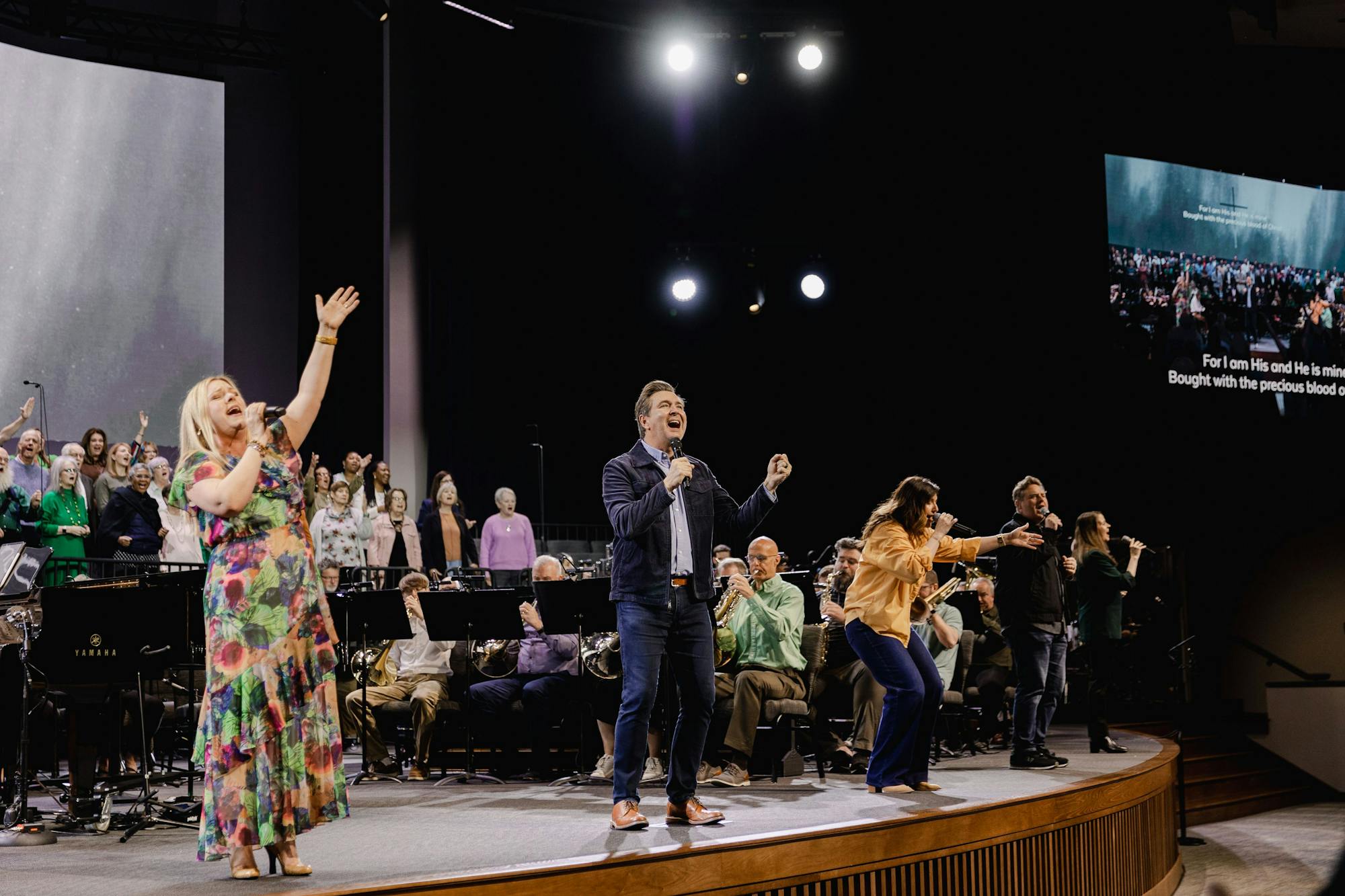Speak Their Language: Unlocking Worship Through Relational Leadership

“I’m just a music guy.”
That’s the cop-out I hear from so many worship leaders over the years. We often focus on music—finding the perfect arrangements, nailing transitions, and introducing new songs.
But leading worship is about so much more than music.
It’s about people.
The most meaningful moments happen when we connect with our congregation on a deeper level, creating an space where they feel seen, heard, and invited into the presence of God. Here are four lessons I’ve learned on this journey, and how they’ve transformed the way I lead.
1. Know Your People
One of the most important lessons I’ve learned is that leading worship begins off the platform. You can’t lead people well if you don’t know them. Early in my ministry, I realized I needed to intentionally step into conversations, hear people’s stories, and learn where they were in their faith journey. Sometimes, this was as simple as inviting someone for coffee or lunch and asking, “How did you get here? How has God been at work in your life?”
When we know our people, we’re not just worship leaders—we’re shepherds. Jesus modeled this perfectly in John 10:14: “I am the good shepherd; I know my sheep and my sheep know me.”
Taking the time to understand your congregation’s needs and stories builds trust and opens the door for authentic worship.
2. Focus on Relational Goals
It’s tempting to measure success by how tight the band sounds or how smoothly the service runs. But I’ve found that the real fruit of worship leadership lies in relationships. When I shifted my focus from musical perfection to relational connection, everything changed. People don’t need a polished performance—they need a leader who genuinely cares.
As I’ve shared before, people will follow leaders who are real. Vulnerability and authenticity create a safe space where people feel free to worship. This aligns with Jesus’ command in John 13:34: “Love one another. As I have loved you, so you must love one another.”
By prioritizing relationships over music, we create an environment where worship becomes a shared experience, not a solo performance.
3. Speak Their Language
One of the most challenging—and rewarding—parts of leadership is bridging the gap between the platform and the pews. I’ve served in churches across the U.S., from highly churched areas to communities where people were completely unfamiliar with Christian terminology. In each context, I’ve learned the importance of meeting people where they are.
Paul’s words in 1 Corinthians 9:22 have been a constant guide for me: “I have become all things to all people so that by all possible means I might save some.”
Whether it’s simplifying language, explaining the meaning behind a song, or inviting people to reflect on a specific truth, we need to make worship accessible. Avoiding “Christianese” and clearly communicating the why behind what we do allows people to engage more deeply.
4. Create Space for Singing
Worship isn’t about the band; it’s about the voices of the congregation lifting their voices to God. One of my priorities as a worship leader is to make it easy for people to sing. That means choosing songs in singable keys, repeating familiar music, and being thoughtful about when and how to introduce new songs.
Psalm 96:1 encourages us to “sing to the Lord a new song,” but I’ve found that balance is key. Overloading a service with new songs can make people feel like spectators instead of participants. By creating moments where the music fades and the voices of the congregation rise, we remind everyone that worship is a collective offering to God.
Moving Forward Together
At the heart of true worship leaders is a call to authenticity. It’s not about perfection; it’s about connection. Your personal relationship with God is the foundation for everything you do. When you lead from a place of overflow, you inspire others to worship freely.
These are just a few of the principles I live by, and I had the chance to unpack them further with my good friend, Mack Burns on a recent episode of the Elevate Podcast,“Know Your People: The Key to Worship Leadership.”
If you’re ready to take your worship leadership to the next level, join me in person this September at the Elevate Conference. Together, let’s explore how relational leadership can transform the way we lead worship. I can’t wait to see you there!

Travis Cottrell
Worship Leader | Brentwood Baptist
Travis Cottrell serves as Worship Leader at Brentwood Baptist Church, where he leads the church’s worship ministry, including its band, choir, and orchestra. For over 30 years, he has recorded more than 30 projects, earned 26 Dove Award nominations, and collaborated with artists across multiple genres. He has also spent 20+ years leading worship for Living Proof events with Beth Moore. Travis and his wife, Angela, live in Brentwood, TN, and have three children. Connect with Travis on Instagram.
